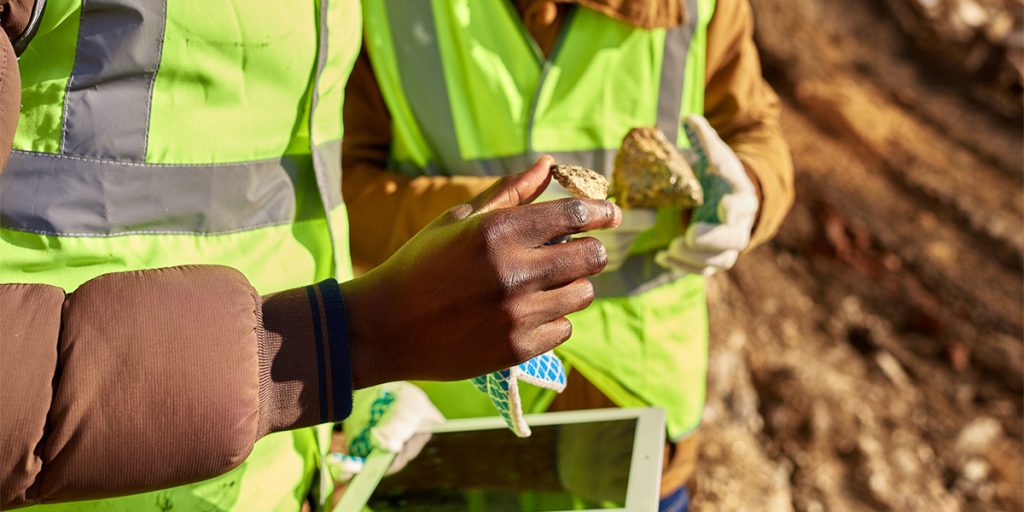
Table of Contents
- What Are Your Pennsylvania Mineral Rights?
- How to Verify Mineral Rights Ownership
- How Do Mineral Royalties Work in Pennsylvania?
- How Are Mineral Rights Taxed in Pennsylvania?
- How to Sell Your Mineral Rights or Royalties in Pennsylvania
- Sell Your Mineral Rights In Pennsylvania
With the recent attention on the Appalachian basin — specifically, the Marcellus shale and the Utica basin — it makes sense that Pennsylvania property owners would consider selling their mineral rights and royalties.
Before you sell, though, it’s important to understand exactly what goes into the process of transferring your mineral rights. This quick guide will explain everything you need to know about your mineral rights in Pennsylvania, including the steps you need to take to make sure you’re getting the best deal.
What Are Your Pennsylvania Mineral Rights?
Owning mineral rights means you are legally entitled to develop and produce the natural resources under your land. This includes oil, gas, coal, and other kinds of minerals.
Landowners with mineral rights can sell or lease their mineral rights to private companies, which grants the mineral owner a royalty on its proportionate share of any hydrocarbons pulled out of the ground. For example, if you owned the mineral rights in a productive region of the Marcellus, you could lease those rights to a Pennsylvania natural gas producer and collect monthly royalty payments once a producing well was drilled, or you could sell your rights and receive a large one-lump sum upfront.
The person or entity who holds the mineral rights is entitled to:
- Receive a lease signing bonus.
- Receive delay rental payments.
- Receive shut-it payments.
- Receive monthly royalties from production.
How to Verify Mineral Rights Ownership
It’s important to note that mineral and surface rights are two separate types of real property interests — while you may have the mineral rights to a property, you may not have the surface rights, and vice versa.
The difference between the two is fairly simple:
- Mineral rights: You have the right to develop, produce, and explore for minerals underneath the surface.
- Surface rights: You have the right to use the surface of the property as you see fit, whether that involves building a new house, hunting, or running cattle.
The best way to verify that you do own the mineral rights to your property is to check the property records at your local courthouse or county recorder’s office. Many county records are now accessible online as well! Although finding the information you need is a straightforward process if you know what you’re looking for, it may be wise to hire a professional land services company to do this for you. The chain of title from homestead patent to present is often messy and complex with gaps in time — using an expert can help you get this done faster and more accurately.
How Do Mineral Royalties Work in Pennsylvania?

If you own the mineral rights to your property and you choose to work with a private company or operator to execute an oil and gas lease, a royalty interest is created which ensures your right to a proportionate share of revenues from any producing well(s) drilled on your minerals.
Your royalties will come in the form of monetary compensation equivalent to your share of the property. After a well is brought online, you’ll receive payments monthly. Typically an operator pays royalties two months after the month of production, so as an example, in December you will receive revenues for October production. You’ll also receive a lease bonus at lease execution.
This assumes a well on your land is drilled within the primary term of your lease. It is common for leases to expire – many operators lease large swaths of land that give them optionality over medium-term development. Due to capital restraints, poor nearby well results, M&A activity, regulatory challenges, low oil and gas prices, and many other factors, your lease may never get drilled.
While you can negotiate your royalties and lease bonus, most companies are only willing to raise one or the other, so it’s important to choose wisely. It’s helpful to remember that mineral royalties are subject to taxation just like mineral rights — however, because your royalties count as ordinary income, the tax rate is slightly higher. Consulting with a tax specialist can help you understand what to expect.
How Are Mineral Rights Taxed in Pennsylvania?
Whether you choose to sell or collect royalties on your mineral rights, whatever income you receive is subject to the Pennsylvania Realty Transfer Tax, which equals 1% of your property’s taxable value.
You can typically determine the taxable value of your mineral rights through one of the following:
- Bona fide sale: A good faith sale of your property for a fair price
- Appraisal: A fair market valuation of your property from an authorized professional
- Common-level ratio: The average ratio between the assessed value of your property and its market value within your county
Under Pennsylvania law, inherited mineral rights are also subject to inheritance tax, just like any other type of real estate. Gifted mineral rights are an exception to this rule, as gifts are not taxable in the Commonwealth.
How to Sell Your Mineral Rights or Royalties in Pennsylvania
If you’ve decided to sell your mineral rights, there are several routes you can take. Although you can sell to any broker you choose, your best bet is to find a reputable mineral rights acquisition company. Doing so allows you to transact directly with the final asset holder, cutting out the middleman so you get the highest price.
Typically, the firm will perform a thorough valuation of your property to determine a fair price. You’ll then receive a basic purchase agreement and mineral deed from your buyer, who will assist you through the rest of the process if you choose to accept. This process can take some time depending on who you choose to work with — look for a firm that can make an offer in a short period of time.
You’ll want to do your due diligence in researching mineral rights acquisition firms, as you should get the best value for your property. Make sure your firm has experience in your state, and watch out for bank draft traps — you want full power of negotiation in order to ensure you get the best price for your property. You also want to make sure the transaction complies with PA mineral rights laws and regulations.
Contact Cloud Peak Minerals to Sell Your Mineral Rights in Pennsylvania
Are you considering selling your mineral rights? You’ve come to the right place. At Cloud Peak Minerals, our in-house team of technical experts thoroughly assesses your property during the valuation process, allowing us to offer the most accurate price on the market in just a few days — or even a few hours.
We pride ourselves on our strong code of Cowboy Ethics. When you trade with us, you’re selling directly to a large long-term buyer with a legitimate interest in ensuring you get the best deal for your mineral rights and royalties. You’d be hard-pressed to find that level of commitment in just any mineral rights broker.
Contact us today at (307) 429-0093 to request a free valuation of your PA mineral rights.

